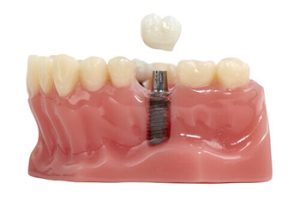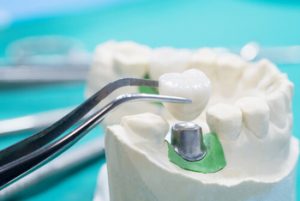Dental implant treatment is a significant factor in oral health, as replacing missing teeth is crucial for maintaining functionality and aesthetics. Dental implants have emerged as a top choice for tooth replacement, offering a durable and natural-looking solution. Implant dentistry plays a crucial role in cosmetic and transformative dental procedures, restoring healthy functions and aesthetics of natural teeth through bio-inert titanium posts inserted in the jaw bone.
While many seek an affordable dental implant cost; Philippines for example offers low prices but it’s essential to understand the potential trade-offs in quality and safety. Conversely, dental implants in Australia, though more expensive, offer unparalleled advantages in terms of care and outcomes. This guide will explore the dental implant costs in the Philippines and highlight why opting for dental implants in Australia might be a wiser choice.
Understanding Dental Implants: What Are Dental Implants?
Dental implants are prosthetic teeth surgically inserted into the jawbone to replace missing teeth through a dental implant procedure. They consist of three main components:
- Implant: A screw-like device placed into the jawbone.
- Abutment: Connects the implant to the crown.
- Crown: The artificial tooth that sits atop the abutment.
The dental implant procedure cost can vary significantly depending on various factors such as the complexity of the case and the materials used.
The Benefits of Dental Implants
Dental implants offer multiple benefits that make them the preferred option for replacing missing teeth:
- Natural Appearance: Implants look and function like natural teeth.

- Enhanced Functionality: They restore full chewing ability.
- Jawbone Preservation: Prevents bone loss that occurs with missing teeth.
- Longevity: With proper care, they can endure a lifetime.
- Improved Speech: Unlike dentures, implants do not slip.
- Boosted Confidence: Restores a confident smile.
- Convenience: No need for adhesives or removals like with dentures.
- Oral Health: Does not affect adjacent teeth.
Considering the numerous benefits, the cost of dental implants is a worthwhile investment for long-term oral health and quality of life.
Affordable Dental Implants: A Closer Look at Dental Tourism
Dental tourism has made the Philippines a popular destination for affordable dental implants. However, cheap dental implants often come with hidden risks. Lower prices can sometimes compromise the quality of care, materials, and hygiene standards, potentially leading to complications.
Dental Implants Cost: Philippines vs. Australia
Starting Prices for a single dental implant in both countries:
- Australia: Dental implants in Australia begin at approximately AUD 3,000 for the complete procedure.
- Philippines: The starting dental implant price in the Philippines is significantly lower, drawing many dental tourists.
The Risks of Getting Dental Implants in the Philippines vs. Australia
The allure of lower costs in the Philippines can be tempting when considering dental implant procedures. However, weighing these savings against the potential risks and drawbacks is crucial, especially when compared to getting dental implants in Australia. A dental implant cost comparison between the Philippines and Australia reveals significant differences that should be considered. Here, we explore some key risks of getting dental implants in the Philippines and why Australia may offer a safer, more reliable option.
Lower Standards of Care
- Philippines: Dental clinics in the Philippines may not adhere to the same stringent standards as those in Australia. The lack of rigorous regulatory oversight can result in varying levels of care and quality. However, many patients are attracted by the dental implant cost savings despite potential trade-offs in care quality.
- Australia: Australian dental clinics follow strict regulations set by the Australian Dental Association (ADA), ensuring high standards of hygiene, safety, and professionalism. This regulatory framework helps to minimise risks and ensure consistent quality of care.
Inconsistent Quality of Materials
- Philippines: Using lower-quality dental implant materials for implants can be a common cost-cutting measure. Inferior materials can lead to complications such as implant failure, infections, and the need for replacement procedures.
- Australia: Australian clinics typically use high-quality, internationally recognised materials. These materials contribute to the longevity and success of dental implants, providing a durable and reliable solution.
Risk of Infection and Complications
- Philippines: The risk of dental implant infection is higher in clinics that do not maintain strict sterilisation protocols. Infections can result in serious complications, including implant failure and damage to the surrounding jawbone.
- Australia: With strict adherence to hygiene protocols and advanced sterilisation techniques, Australian clinics significantly reduce the risk of infections and complications. This ensures a safer surgical environment and promotes successful outcomes.
Variability in Professional Expertise
- Philippines: The level of expertise among implant dentists and other dental practitioners can vary widely. Some practitioners may lack the training required for complex implant procedures, increasing the risk of errors and complications.
- Australia: Australian implant dentists undergo extensive training and continuous professional development. This ensures they are up-to-date with the latest techniques and technologies, providing patients with high-quality care.
Limited Post-Operative Care
- Philippines: Post-operative care may be less comprehensive. Follow-up visits and monitoring are crucial for the success of dental implants, and insufficient aftercare can lead to complications.
- Australia: Australian dental clinics offer thorough post-operative care, including routine follow-up appointments to monitor the healing process and address any issues promptly. This comprehensive dental care ensures the best possible outcomes.
Potential Language and Communication Barriers
- Philippines: Communication barriers can challenge understanding the procedure, risks, and aftercare instructions. Miscommunication can lead to misunderstandings and inadequate care.
- Australia: In Australia, you are more likely to find fluent English-speaking professionals who can clearly explain the procedure, address your concerns, and provide detailed aftercare instructions, ensuring you are fully informed at every stage.
Legal and Ethical Considerations
- Philippines: In the event of malpractice or unsatisfactory results, legal recourse can be complex and less straightforward.
- Australia: Australia has stringent legal and ethical standards governing medical and dental practices. Patients have clear avenues for recourse and complaint, ensuring extra security and responsibility.
Financing and Insurance Coverage
- Philippines: Financing options and insurance coverage for dental procedures may be limited. Patients must pay out-of-pocket, which can add to the financial burden, especially if complications arise requiring further treatment.
- Australia: Various financing options and insurance plans are available to help manage the costs of dental implants. Many insurance plans cover part of the procedure, especially if medically necessary. This financial support makes it easier for patients to afford high-quality care without compromising safety or outcomes.
Factors Affecting Dental Implant Cost
Several vital factors can influence the overall cost of dental implants when planning for dental implants. Understanding these factors can help you make proper decisions about your treatment. A detailed dental implant cost breakdown is crucial for understanding the overall cost.
Initial Consultation and Treatment Planning
The initial assessment, including diagnostic images (like X-rays or CT scans) and detailed treatment planning, impacts the overall cost.
Dentist Expertise and Training
Experienced and highly trained implant dentists with significant dentist expertise typically charge higher fees due to their advanced skills and higher success rates. Continuous professional development ensures they use the latest techniques.
Quality of Materials and Technology
Quality of materials, such as titanium implants, porcelain crowns, and advanced technology (like computer-guided surgery and 3D imaging), increase costs but offer better durability, aesthetics, and outcomes.
Complexity of the Procedure and Additional Treatments
The cost is affected by the complexity of the implant procedure, which can range from single-tooth replacements to full-mouth restorations. Additional procedures like bone grafting, sinus lifts, or periodontal treatments also add to the total expense.
Post-operative care and Follow-Up
Comprehensive aftercare, including follow-up visits and maintenance, is crucial for implant success and can add to the overall cost. Regular check-ups ensure proper healing and long-term success.
Insurance and Financing Options
The scope and availability of insurance coverage and financing options significantly influence out-of-pocket expenses. Some insurance plans may cover part of the procedure, making high-quality care more affordable.
Clinic Location and Regulatory Standards
Geographic location impacts costs, with urban clinics charging more than rural ones. Clinics adhering to stringent regulatory standards for hygiene, safety, and ethical practices may have higher operational costs, which may be reflected in their pricing.
The Dental Implant Journey: Step-by-Step Process
Understanding the dental implant procedure can help patients prepare for the journey ahead:
A dental implant cost estimate plays a crucial role in treatment planning, helping patients understand the financial aspects of their dental implant journey.
Initial Consultation
The dental implant journey involves an initial consultation to evaluate the patient’s oral health and develop a personalised treatment plan. Advanced imaging techniques, such as X-rays or CT scans, assess the condition of the jawbone.
Treatment Planning
Based on the consultation, the dentist outlines the treatment planning, including the number of implants required, any additional procedures needed, and the overall timeline.
Implant Placement
The surgical procedure involves placing implants into the jawbone. This is done under local anaesthesia, and the procedure typically takes 1-2 hours per implant.
Healing Period
After the implant is placed, a 3—to 6-month healing period is necessary for osseointegration, where the implant fuses with the jawbone.
Abutment Placement
After the implant has integrated with the bone, an abutment is secured to it. This part acts as a bridge between the implant and the crown.
Crown Placement
The final step is placing the dental crown, which is custom-made to match the patient’s natural teeth.
Post-Procedure Care
Post-procedure care after the surgery is crucial for the success of dental implants. Patients should adhere to good oral hygiene measures, follow the dentist’s instructions, and attend regular check-ups to ensure successful outcomes and avoid potential risks like implant failure or infection.
Proper post-procedure care also enhances dental implant cost-effectiveness by reducing the likelihood of complications and the need for additional treatments.
Potential Risks and Considerations
 As with any surgical or invasive procedure, dental implants carry potential risks. These risks can include infection at the surgical site, nerve damage, sinus problems (for implants in the upper jaw), and implant failure. Choosing an experienced implant dentist and following all post-operative care instructions is essential to minimise these risks. Opting for dental implants in Australia, where stringent regulatory standards and advanced medical practices are upheld, significantly minimises these risks. Additionally, understanding and planning for dental implant cost risks can help mitigate financial concerns associated with the procedure.
As with any surgical or invasive procedure, dental implants carry potential risks. These risks can include infection at the surgical site, nerve damage, sinus problems (for implants in the upper jaw), and implant failure. Choosing an experienced implant dentist and following all post-operative care instructions is essential to minimise these risks. Opting for dental implants in Australia, where stringent regulatory standards and advanced medical practices are upheld, significantly minimises these risks. Additionally, understanding and planning for dental implant cost risks can help mitigate financial concerns associated with the procedure.
FAQs About Dental Implants in Australia
Are dental implants painful?
Most patients report that the dental implant pain is manageable and less than anticipated. Pain management options, including local anaesthesia and post-operative pain relievers, help ensure a comfortable experience.
Can anyone get dental implants?
While dental implants are suitable for many, candidates must have adequate bone density in their jaws to support them. A thorough evaluation by a qualified dentist will determine if you are a suitable candidate.
What are the alternatives to dental implants?
Dental implant alternatives include dentures and dental bridges. However, dental implants are often preferred for their durability, natural appealing look, and ability to preserve jawbone structure.
How do I maintain my dental implants?
Maintaining dental implants involves maintaining them with the same care as natural teeth: brushing two times a day, flossing, using antibacterial mouthwash, and regular dental check-ups. Proper oral hygiene is crucial to preventing infection and ensuring the success of your implants.
Is there a risk of implant rejection?
Implant rejection is rare, but implant rejection can happen if the body rejects the foreign material or if there is an infection. Choosing an experienced dentist and following post-operative care instructions can minimise this risk.
How soon can I return to work after getting a dental implant treatment?
Most patients can return to work within a few days after the procedure, but the recovery period can vary according to the complexity of the surgery and the individual’s healing process. Your dentist will provide specific recommendations based on your situation.
What should I expect during the recovery period?
The recovery expectations for dental implants involve swelling, discomfort, and minor bleeding, which typically subside within a few days. Full healing and osseointegration (the fusion of the implant with the jawbone) can take several months.
Are dental implants safe?
Dental implant safety is a key consideration, and when performed by experienced professionals, dental implants are considered a safe and effective tooth replacement option. As with any medical procedure, there are risks, but the success rate for dental implants is high, and complications are rare.
Can I get dental implants if I have gum disease?
Gum disease impact can affect the success of dental implants. It is essential to treat any existing gum disease before undergoing implant surgery. Your dentist will assess your oral health and recommend the best action.
Reaping the Long-Term Benefits: Embarking on Your Dental Implant Journey
 Understanding the costs, procedures, and necessary care is mandatory for making an informed decision that will positively impact your oral health for years. The long-term benefits of dental implants make them a worthwhile investment in oral health. Additionally, the dental implant cost benefits contribute to long-term oral health by potentially reducing future dental expenses. Choosing the right dental professional and clinic is vital for a smooth and successful dental implant experience. With careful planning and thorough research, your dental implant journey in Australia can lead to lasting, successful results.
Understanding the costs, procedures, and necessary care is mandatory for making an informed decision that will positively impact your oral health for years. The long-term benefits of dental implants make them a worthwhile investment in oral health. Additionally, the dental implant cost benefits contribute to long-term oral health by potentially reducing future dental expenses. Choosing the right dental professional and clinic is vital for a smooth and successful dental implant experience. With careful planning and thorough research, your dental implant journey in Australia can lead to lasting, successful results.
Take a step towards a healthier, more confident you with dental implants in Australia. For more information or to schedule a consultation, contact Beyond Infinity Dental at (02) 8806 3799.
Note: Any surgical or invasive procedure carries risks. Before proceeding, you should seek a second opinion from an appropriately qualified health practitioner.
Sources
Royal College of General Practitioners. (2022). Primary care: Recovery still needs more support. British Journal of General Practice, 72(714), 4. https://doi.org/10.3399/bjgp22X718325
Journal of Oral Medicine and Oral Surgery. (2022). Comparative analysis of bone regeneration techniques. Journal of Oral Medicine and Oral Surgery, 28(2). https://doi.org/10.1051/mbcb/202210065
Australian Dental Association. (n.d.). Dental practice policies. https://ada.org.au/about/policies/dental-practice#:~:text=The%20ADA%20believes%20dentistry%20should,provided%20to%20those%20in%20need.
U.S. Food and Drug Administration. (n.d.). Dental implants: What you should know. https://www.fda.gov/medical-devices/dental-devices/dental-implants-what-you-should-know
Healthline. (2020). Dentures vs. implants: Which is right for you? https://www.healthline.com/health/dentures-vs-implants









